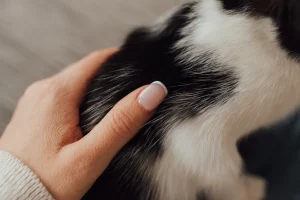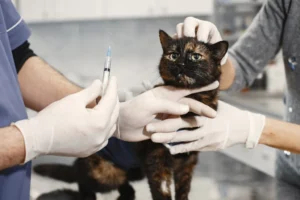Is your beloved feline friend leaving unwelcome surprises on your stairs? It’s frustrating, messy, and downright puzzling. Let’s get to the bottom of why your cat keeps pooping on the stairs.
Is your furry friend trying to tell you something with their bathroom habits? Explore the reasons behind this behavior and find solutions to tackle the issue head-on. Let’s uncover the mystery together.
Possible Reasons for Your Cat’s Behavior
If you’re wondering why your cat has developed a sudden affinity for using the stairs as their personal bathroom, there could be a few reasons at play. One common cause could be a medical issue, such as a urinary tract infection or gastrointestinal problem, prompting your feline friend to seek alternative spots. Stress or anxiety could also be a factor, leading your cat to choose the stairs as a form of marking territory or seeking comfort in a familiar location. Additionally, changes in their routine, diet, or environment could trigger this behavior. It’s essential to observe your cat’s habits closely and consult with a veterinarian to rule out any underlying health concerns.
Importance of Litter Box Placement
The placement of your cat’s litter box plays a crucial role in shaping their bathroom behavior. Cats are creatures of habit and value their privacy and security when using the litter box. If the litter box is located in a busy or noisy area of the house, your cat may feel stressed or vulnerable. Consider placing the litter box in a quiet, secluded spot where your cat can do their business in peace. Make sure the litter box is easily accessible and clean, as cats are meticulous animals and may avoid a dirty or smelly box. If you have multiple cats, ensure each cat has their own litter box to prevent territorial disputes.
Additional Unique Insight
Keep in mind that some cats have strong preferences when it comes to the type of litter they use. Experiment with different types of litter, such as clumping vs. non-clumping or scented vs. unscented, to see what your cat prefers. Providing the right litter for your cat‘s preferences can encourage them to use the litter box consistently and avoid accidents on the stairs. Remember, understanding your cat‘s unique preferences can help create a comfortable and appealing bathroom environment for them.
Remember, addressing your cat’s bathroom habits requires patience and understanding. By identifying the root cause of their behavior and making adjustments to their litter box setup, you can help your feline companion feel more comfortable and secure in their home.
Stress and Anxiety in Cats
Is your feline friend leaving surprises on the stairs instead of using their litter box? Well, stress and anxiety could be the culprits here. Just like humans, cats can also experience emotional distress that might lead to unusual behaviors like inappropriate elimination. Changes in their environment, routine disruptions, or even a new pet in the house can trigger stress in your kitty. Make sure to create a safe, comforting space for your cat, provide plenty of playtime and mental stimulation, and establish a consistent routine to help alleviate their anxiety. If the issue persists, consider consulting with a veterinarian to explore further solutions.
Medical Issues to Consider
If your cat is consistently choosing the stairs over their litter box, it’s essential to rule out any underlying medical problems. Various health issues, such as urinary tract infections, gastrointestinal disorders, or even arthritis, can make it uncomfortable for your cat to use their litter box. Keep an eye out for other symptoms like changes in appetite, water intake, or lethargy. A visit to the vet for a thorough examination and possible diagnostic tests can help pinpoint any potential medical concerns. Remember, addressing any health issues promptly is crucial for your cat’s overall well-being.
Additional Insight: Consider the placement of your cat’s litter box. Cats are very particular about their bathroom habits and may avoid their litter box if it’s in a noisy, high-traffic area or if they associate it with negative experiences. Ensure the litter box is in a quiet, easily accessible location where your cat feels safe and secure. Experiment with different types of litter, box sizes, and cleanliness levels to find what works best for your feline friend. A comfortable and inviting bathroom environment can go a long way in preventing accidents on the stairs.
Remember, understanding the root cause of why your cat is pooping on the stairs is the first step towards finding a solution. By addressing stress, anxiety, and medical issues, you can help your beloved pet get back on track with their litter box habits. And don’t forget, patience and consistency are key in resolving this behavior issue. Your furry companion is counting on you to provide them with a loving and supportive environment.
Steps to Encourage Proper Bathroom Behavior
Is your cat leaving surprises on the stairs? It can be frustrating, but there are steps you can take to encourage proper bathroom behavior. First, ensure your cat’s litter box is clean and in a quiet, accessible location. Cats are clean animals and may avoid a dirty or hard-to-reach litter box. Additionally, consider using a litter that your cat prefers – some cats are picky about textures and scents.
Another tip is to provide multiple litter boxes in different areas of your home, especially if you have a multi-level house. This can give your cat options and prevent accidents on the stairs. It’s also important to establish a routine for feeding and litter box cleaning – cats thrive on consistency.
Lastly, if your cat continues to have accidents on the stairs, consult with your veterinarian to rule out any medical issues that may be causing the behavior. By following these steps, you can help your cat develop proper bathroom habits and prevent future accidents on the stairs.
Cleaning and Odor Removal Strategies
Dealing with cat poop on the stairs is not pleasant, but it’s important to clean up accidents promptly to prevent repeat incidents. Start by using a pet-safe cleaner to thoroughly clean the affected area. Avoid using harsh chemicals that may be harmful to your cat.
To eliminate lingering odors, sprinkle baking soda on the stairs and let it sit for a few hours before vacuuming it up. You can also try using a commercial pet odor remover to neutralize any remaining smells. Additionally, consider placing a litter box near the stairs to encourage your cat to use it instead of the stairs as a bathroom.
For a deep clean, steam cleaning the carpet can help remove any stubborn stains and odors. Remember, consistency is key when it comes to cleaning up accidents – the quicker you clean, the less likely your cat is to repeat the behavior.
Extra Tip: Place a motion-activated air freshener near the stairs to mask any lingering odors and discourage your cat from using the area as a bathroom spot.
Link to a helpful resource on pet-safe cleaning products
Consistency and Patience in Training
Consistency and patience are key when it comes to training your cat to use the litter box reliably. Make sure the litter box is always clean, easily accessible, and located in a quiet spot to encourage your cat to use it. When accidents happen, resist the urge to scold your cat. Instead, gently redirect them to the litter box. Remember, cats respond better to positive reinforcement!
Interesting Fact: Cats are Creatures of Habit Cats thrive on routine, and their bathroom habits are no exception. Establishing a consistent feeding and litter box cleaning schedule can help prevent accidents like pooping on the stairs. Additionally, pay attention to any changes in your cat’s environment that may be causing stress or anxiety, as this can also lead to inappropriate elimination. By understanding your cat’s natural behavior and needs, you can create a peaceful environment that encourages proper litter box usage.
Answer: Understanding the reasons behind your cat’s behavior, addressing any potential triggers, and providing a suitable environment can help prevent them from pooping on the stairs.
Alex, a passionate animal lover, has experience in training and understanding animal behavior. As a proud pet parent to two dogs and three cats, he founded AnimalReport.net to share insights from animal experts and expand his knowledge of the animal kingdom.









